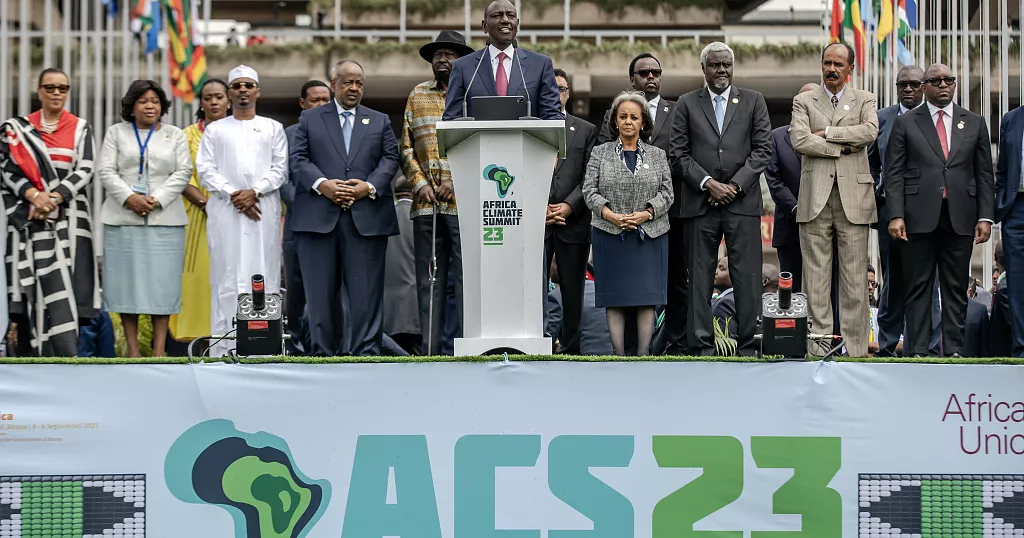A significant African climate summit concluded on Wednesday after leaders adopted a declaration emphasizing the continent’s potential as a green energy leader, as stated by Kenyan President William Ruto.
“We proceed with the Nairobi declaration,” announced Ruto, marking the end of the three-day conference. Ruto had advocated for a shift in the summit’s narrative, focusing on Africa’s transition to clean energy in the face of climate-related disasters.
The final version of the document, as seen by AFP, said, “This declaration will serve as a basis for Africa’s common position in the global climate change process.”
Analysts believe that a unified African voice could create momentum for a series of crucial meetings leading up to a pivotal UN climate summit scheduled to commence in November, including the G20 meeting in New Delhi this weekend.
The declaration calls for “a new financing architecture that is responsive to Africa’s needs, including debt restructuring and relief,” as concerns rise about the high cost of financing on the continent. It also urges rich carbon-emitting nations to honor their longstanding climate commitments to poorer countries and calls on world leaders to support a proposed “carbon tax on fossil fuel trade, maritime transport, and aviation.”
Although the 54-nation continent is particularly vulnerable to the growing impacts of climate change, the summit primarily focused on calls to unlock investments in clean energy.
“A new Africa is emerging, and it means business,” stated Ruto.
The summit secured pledges of $23 billion in funding “for green growth, mitigation, and adaptation efforts” across the continent, according to him. Competing visions of the world’s energy future are likely to be on display at the COP28 talks in the oil-rich United Arab Emirates, where the world will assess the as-yet-insufficient efforts to reduce planet-warming emissions.

